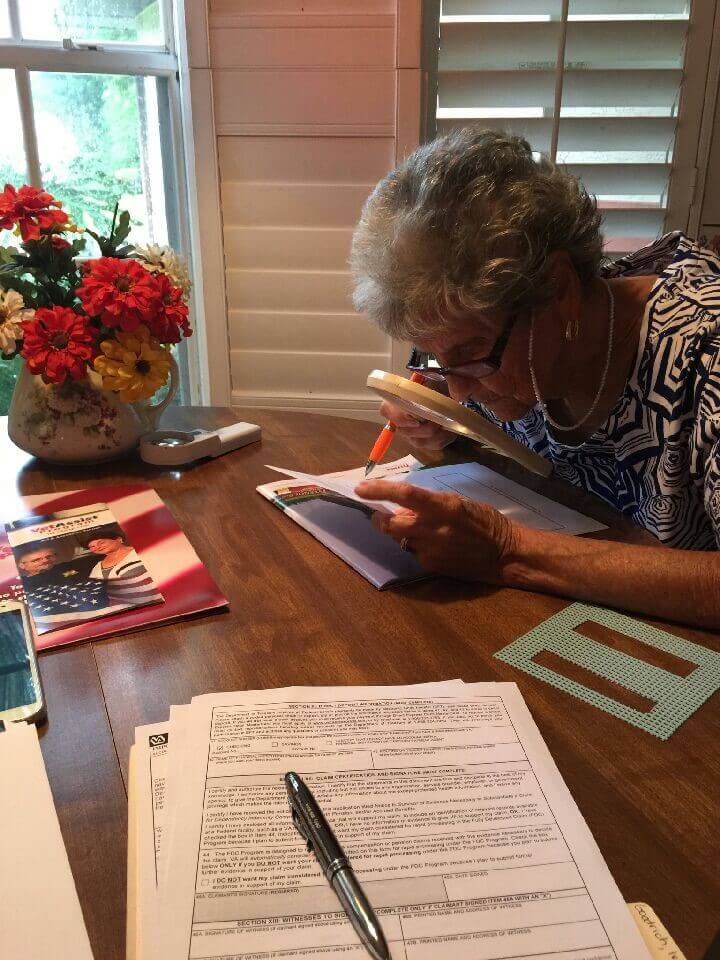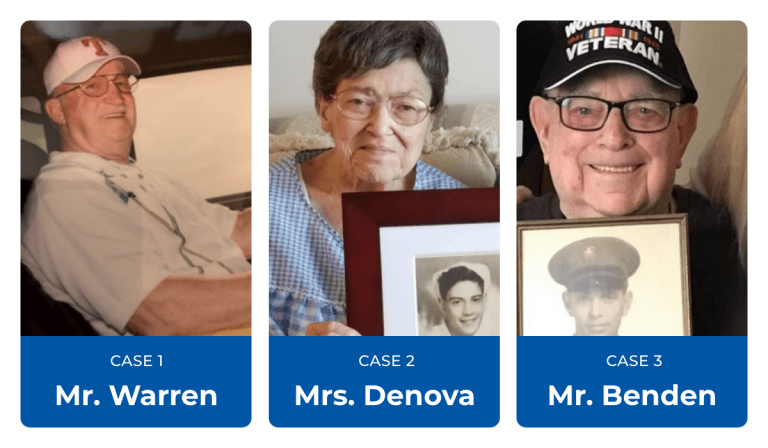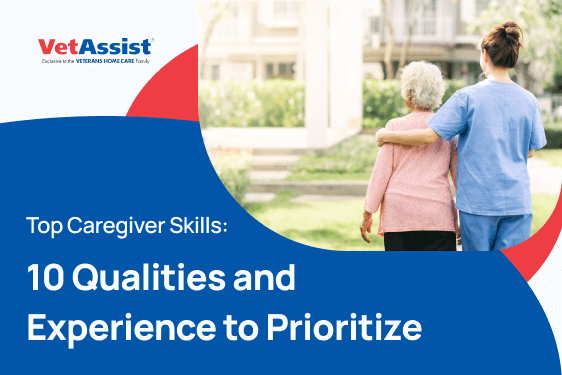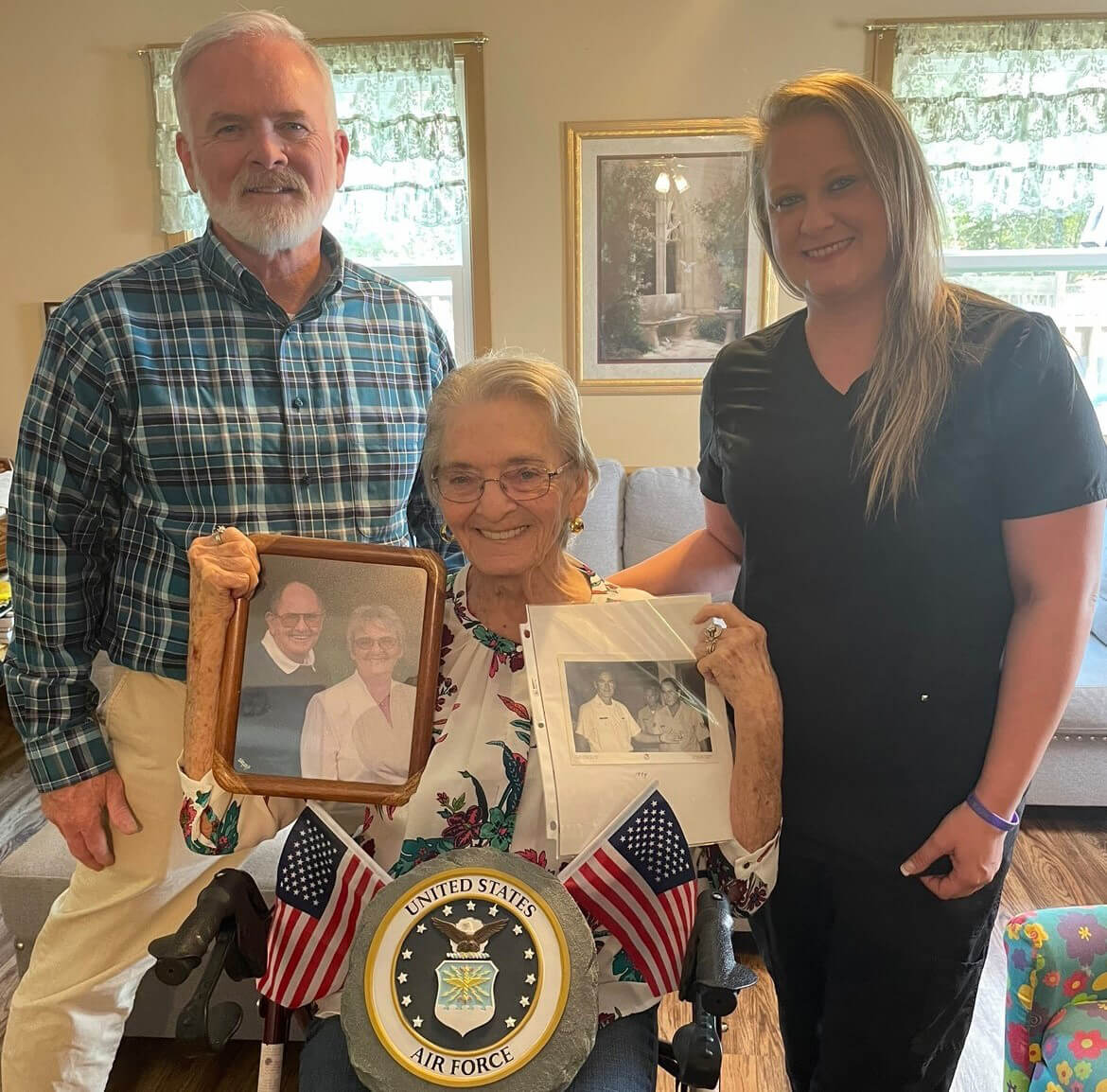Home Care Program and Vision Problems
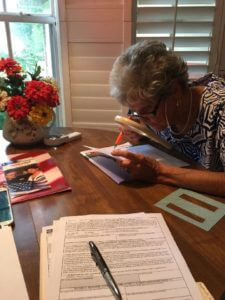
Staying safer at home can be more complicated for seniors when they’re struggling with their eyesight. Some may even qualify for home care assistance through the Department of Veterans Affairs.
A home care aide can help older adults get around.
Getting around safely is something we often take for granted when we have good eyesight and physical strength, balance, and dexterity. As people get older or begin struggling with their vision or physical strength, walking around the house, a simple activity for younger individuals, suddenly becomes more complicated.
As a person gets older, the risk of vision loss increases. Vision loss can occur from cataracts, glaucoma, diabetic retinopathy, and macular degeneration.
An experienced aide will be able to provide the support a person with vision loss needs to stay safer when getting around. A home care aide, someone hired through an agency, can be there when the senior needs support. They can be hired for just a couple of hours a day once or twice a week to start.
Many older adults may qualify for assistance
Unfortunately, there are a number of seniors with limited financial resources that need home care assistance. They may not believe it’s possible to afford a home care aide. However, they may qualify for a little-known VA pension and Aid and Attendance benefit that covers the cost of assistance with activities of daily living.
If you were married to a veteran, you may qualify for home care assistance
When trying to find financial support for home care, especially for women who have never served in the military, people don’t often look toward the Department of Veterans Affairs or the VA. However, there is a little known VA pension available to some wartime veterans and their surviving spouses called Aid and Attendance. So even if you didn’t serve our country, if you are a surviving spouse of a wartime veteran, you may qualify.
A veteran may qualify if:
- Military: you served at least 90 days on active duty, at least one day during wartime, with an honorable discharge. (Persian Gulf War veterans must have two years of active duty.)
- Medical: you have a non service-connected medical condition causing you to need assistance with activities of daily living.
- Money: you have limited income and assets compared with your medical expenses. (Your home and car are exempt and you can deduct medical and home care expenses to improve your eligibility.)
Surviving spouses may qualify if:
- Marriage: you were married to a qualifying wartime veteran at the time of his or her death and for at least one year. If you have re-married, you will not qualify unless the remarriage occurred after 1/1/1971 and ended before 11/1/1990.
- Medical: you have a medical condition causing you to need assistance with activities of daily living
- Money: you have limited income and assets compared with your medical expenses. (Your home and car are exempt and you can deduct medical and home care expenses to improve your eligibility.)
If your eyesight is limited to a corrected 5/200 visual acuity or less in both eyes; or concentric contraction of the visual field to 5 degrees or less, you meet the medical criteria for Aid and Attendance.
However, you do not need to be legally blind to qualify for this benefit. If you have problems with vision, or any disabling conditions in which you require assistance with daily living (help with dressing, bathing, walking, eating, meal preparation, grooming and using the bathroom), you may meet the medical qualifications. A physician must verify your medical condition when you apply for the benefit.
Our VetAssist® Program can help you apply for the VA’s Aid and Attendance benefit and access the home care you need. For more information and to learn about The VetAssist Program, contact Veteran’s Home Care at (888) 314-6075.



